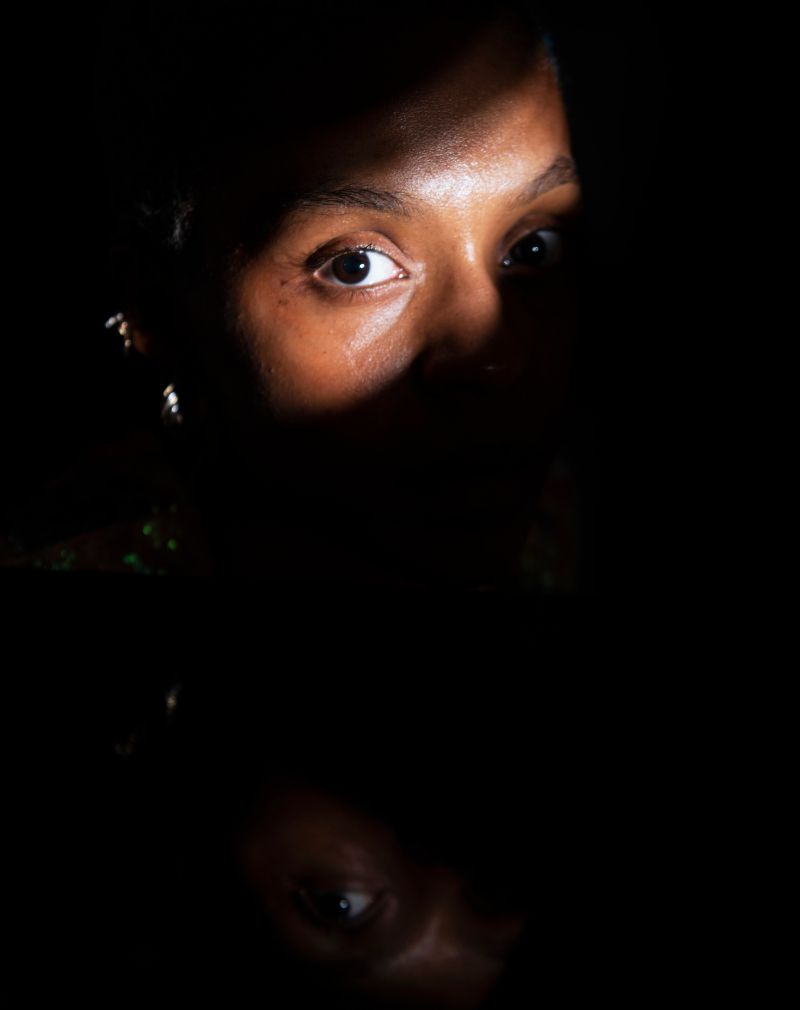Sleep disorders in children are a critical concern that can significantly impact a child’s health, development, and family life. The Diagnostic and Statistical Manual of Mental Disorders, Fifth Edition (DSM-5), provides a framework for understanding and diagnosing these disorders, emphasizing the importance of early intervention. This comprehensive guide helps the types of sleep disorders prevalent in children, their effects on both the child and their family, and the pivotal role of child psychiatrists in addressing these challenges.
The Impact of Sleep Disorders on Children
Sleep is a fundamental aspect of a child’s development, playing a crucial role in brain development, emotional regulation, and physical health. Sleep disorders can disrupt these processes, leading to a range of cognitive, behavioral, and health issues. Children with sleep disorders may experience difficulties with memory, attention, and learning, which can affect their academic performance. Behaviorally, these children might exhibit signs of irritability, hyperactivity, or social withdrawal, often misinterpreted as behavioral disorders.
The emotional toll on children with sleep disorders should not be underestimated. The lack of restorative sleep can lead to increased stress, anxiety, and depression. Physically, sleep disruptions can affect growth, immune function, and the risk of obesity and other metabolic conditions.
The Ripple Effect on Family Life
Sleep disorders in children also profoundly affect family dynamics and parental well-being. Parents of children with sleep disorders may experience increased stress, fatigue, and marital strain. The night-time disturbances can lead to sleep deprivation in parents, affecting their work performance, mental health, and overall quality of life. Siblings may also be impacted, experiencing disrupted sleep or feeling neglected due to the increased attention on the affected child.
Types of Sleep Disorders in Children According to DSM-5
DSM-5 categorizes sleep disorders into several types, each with unique characteristics and implications for children. Understanding these categories is crucial for accurate diagnosis and effective treatment.
Insomnia Disorder
Insomnia in children involves difficulty falling asleep or staying asleep, leading to significant distress or impairment in daily functioning. It can be triggered by stress, irregular sleep routines, or underlying mental health conditions.
Sleep-Related Breathing Disorders
This category includes conditions like obstructive sleep apnea, where breathing repeatedly stops and starts during sleep, leading to disrupted sleep and potential developmental concerns.
Central Disorders of Hypersomnolence
These disorders, including narcolepsy, are characterized by excessive daytime sleepiness, regardless of sufficient nighttime sleep. They can severely impact a child’s daily activities and alertness.
Circadian Rhythm Sleep-Wake Disorders
These disorders involve a misalignment between the individual’s sleep-wake cycle and the external environment, causing difficulties in sleep timing, which can affect social and academic commitments.
Parasomnias
Parasomnias, such as sleepwalking, night terrors, and nightmares, involve abnormal movements, behaviors, emotions, perceptions, or dreams that occur while falling asleep, sleeping, or waking up.
Sleep-Related Movement Disorders
This category includes conditions like restless legs syndrome, where there is an irresistible urge to move the legs, causing difficulty in initiating and maintaining sleep.
What are the causes
The Diagnostic and Statistical Manual of Mental Disorders, Fifth Edition (DSM-5), identifies several potential causes for sleep disorders in children. These causes can vary widely depending on the specific type of sleep disorder, but they generally encompass biological, psychological, and environmental factors. Here are the key points regarding these causes:
1. Biological Factors
- Genetic Predisposition: Some sleep disorders, such as narcolepsy, have a genetic component, making children more susceptible to developing the condition.
- Neurological Imbalances: Disruptions in the brain’s regulation of sleep-wake cycles can lead to disorders like insomnia or hypersomnolence.
- Physical Health Issues: Conditions such as asthma, allergies, or acid reflux can cause discomfort that disrupts sleep. Obstructive sleep apnea is often related to enlarged tonsils or adenoids.
2. Psychological Factors
- Stress and Anxiety: Emotional stressors, such as school pressures or family issues, can lead to difficulty falling or staying asleep.
- Behavioral Issues: Poor bedtime routines or sleep habits can contribute to insomnia. Behavioral insomnias of childhood are directly related to children’s sleep behaviors and parental interactions.
- Mental Health Disorders: Conditions such as depression, anxiety, and ADHD are often associated with sleep disturbances.
3. Environmental Factors
- Exposure to Screens: The light emitted from screens (TVs, tablets, smartphones) can interfere with the body’s natural circadian rhythms, making it harder to fall asleep.
- Irregular Sleep Schedules: Inconsistent bedtimes and wake times, often due to overscheduling or school demands, can disrupt a child’s sleep patterns.
- Family Dynamics: Changes in the home environment, such as the birth of a sibling, divorce, or relocation, can induce stress that affects sleep.
Understanding these causes is crucial for addressing sleep disorders in children effectively. The DSM-5 emphasizes a comprehensive approach to diagnosis and treatment, considering the wide range of potential contributing factors to develop an effective intervention strategy.
The Role of Child Psychiatrists
A child psychiatrist plays a critical role in the treatment of sleep disorders in children, addressing the psychological, behavioral, and emotional aspects of these conditions. They use comprehensive assessment approach emphasizing on both the mind and behavior in the context of sleep disturbances.
- Assessment and Diagnosis: Child psychiatrists evaluate sleep disorders within the broader context of a child’s mental health, considering how emotional and psychological factors may contribute to or result from sleep problems. They use detailed clinical interviews, behavioral assessments, and collaboration with family members to understand the child’s sleep issues, distinguishing them from other psychiatric conditions that may present with similar symptoms.
- Treatment Planning: They develop comprehensive treatment plans that may include psychotherapy, behavioural interventions, and, when necessary, medication. Cognitive-behavioral therapy (CBT) is often used to address negative thoughts and behaviors affecting sleep, teaching children’s strategies to manage anxiety or stress that may be hindering their sleep.
- Family Support: Child psychiatrists also provide guidance to families on establishing healthy sleep habits and routines, emphasizing the importance of sleep hygiene. They work with parents to create a conducive sleep environment and implement consistent bedtime routines that facilitate better sleep.
- Medication Management: In some cases, child psychiatrists may prescribe medications to address underlying mental health issues contributing to the sleep disorder or to directly improve sleep patterns, always considering the most appropriate and safe options for the child.
The Role of Child Neurologists
A child neurologist plays a vital role in diagnosing and managing sleep disorders in children, focusing on conditions that stem from or affect the nervous system. They are specialists in identifying the neurological underpinnings of sleep disturbances and implementing tailored treatment plans.
Diagnosis: Child neurologists utilize their expertise in the nervous system to differentiate sleep disorders that may have neurological causes, such as narcolepsy, restless legs syndrome, and sleep-related epilepsy. They perform comprehensive evaluations, which may include taking detailed medical histories, conducting physical exams, and ordering diagnostic tests like electroencephalograms (EEG) or polysomnograms (sleep studies). This thorough assessment helps in pinpointing specific neurological factors contributing to sleep problems.
Treatment: Based on the diagnosis, child neurologists can recommend a range of treatments tailored to the child’s specific condition. These may include medication to address neurological issues, behavioral therapy to modify sleep habits, and guidance on sleep hygiene to improve sleep quality. For conditions like epilepsy, which can disrupt sleep, neurologists may adjust anti-seizure medications to minimize their impact on sleep.
Collaboration: Child neurologists often work in multidisciplinary teams, collaborating with child psychiatrists, sleep specialists, and other healthcare professionals. This collaborative approach ensures a holistic treatment plan that addresses both the neurological aspects of the sleep disorder and its broader impacts on the child’s health and well-being.
The Role of Child Psychologists
A child psychologist plays a crucial role in treating sleep disorders in children by focusing on the behavioral, emotional, and cognitive aspects that may influence sleep patterns. They utilize non-pharmacological interventions to address sleep problems, emphasizing behavioral modification and cognitive-behavioral techniques. Through therapy sessions, child psychologists teach children and their parents’ strategies for managing anxiety or stress that can interfere with sleep, such as relaxation techniques and positive bedtime routines. They also work on modifying behaviors and thoughts that negatively impact sleep, such as fear of sleeping alone or worries that prevent falling asleep. By reinforcing healthy sleep habits, establishing consistent bedtime routines, and addressing any underlying psychological issues, child psychologists help improve sleep quality and duration. Their intervention not only aids in resolving the immediate sleep issues but also contributes to the child’s overall emotional and psychological well-being.
The Role of Pediatricians
Pediatricians play a pivotal role in the early identification and management of sleep disorders in children. As primary care providers, they are often the first to recognize sleep-related issues during routine health check-ups. Pediatricians conduct comprehensive evaluations, including sleep history and physical examinations, to identify potential sleep disorders. They provide initial guidance on sleep hygiene and behavioral strategies to improve sleep habits. It is very important that they should refer patients to child psychiatrist or child neurologists, for further evaluation and treatment. Their ongoing monitoring and support ensure that sleep disorders are managed effectively, contributing to the overall health and development of the child.
The Importance of Early Intervention
Early intervention is paramount in managing sleep disorders in children. Early diagnosis and treatment can prevent the escalation of symptoms and mitigate the adverse effects on development, academic performance, and family life. Intervention strategies can improve sleep quality, enhance daytime functioning, and support overall well-being. Moreover, addressing sleep disorders early can help prevent the development of secondary conditions, such as depression or anxiety, which can arise from chronic sleep deprivation.
In conclusion, sleep disorders in children are a significant concern with far-reaching implications for the child and their family. The DSM-5 provides a structured approach to diagnosing these disorders, highlighting the importance of early intervention. Child psychiatrists are at the forefront of addressing these challenges, offering hope and support to affected families. Recognizing and treating sleep disorders in children is essential for their health, development, and quality of life, underscoring the need for awareness and access to specialized care.
Understanding and addressing sleep disorders in children is crucial for their well-being and development. We, at American Wellness Center, located in Dubai Healthcare City, Dubai, are dedicated to providing comprehensive care and support for children and their families facing these challenges. Our multidisciplinary team of experts, including child psychiatrists, neurologists, psychologists, and pediatricians, employs a holistic approach to diagnose, treat, and manage sleep disorders. Through early intervention and personalized treatment plans, we strive to improve sleep quality, enhance daytime functioning, and support overall health, ensuring every child can achieve their full potential.



